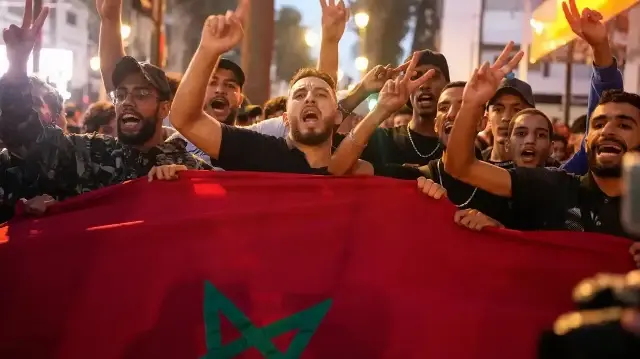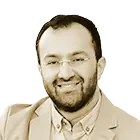What happened in Morocco?

If I had written this piece last week, the title would have been: “What’s happening in Morocco?” A few days of street protests, activists speaking into microphones, calls for reforms in healthcare and education, public buildings partially set on fire in some cities, arrests… By the time it was Morocco’s turn to be covered, the unrest had already subsided—albeit through police intervention. Those who closely follow the region had already expected that such incidents in a country like Morocco would fizzle out before escalating too far.
Located at the far western tip of the Maghreb, between the Atlantic Ocean and the Mediterranean Sea, and with strong ties to both the African interior and Europe, Morocco is one of the most distinctive countries in the Islamic world. Touristically striking and authentic, socially lively and colorful, and politically held together by its own unique set of balances.
The Moroccan kings, whose lineage traces back to Hasan ibn Ali—and therefore to the Prophet Muhammad himself—hold considerable influence and weight over the population. The current dynasty, established in the first half of the 1600s, still commands broad respect despite centuries of transformation and the winds of modern ideas. Of course, behind this reverence lies a well-orchestrated state system: interest-based ties between religious groups and the state, tight control over mosques, a nationwide informant network, and broad police powers, all carefully managed by the monarchy.
To maintain close contact with the public, the royal establishment makes a point of emphasizing displays of religiosity. In this context, the generous support of lodges and Sufi centers scattered across the country, appearances by members of the royal family in mosques during celebrations such as the Mawlid, publicized tarawih and Eid prayers, and the Ramadan religious lessons delivered in the King’s presence (known as “Durûs al-Hasaniyya,” after the current King Mohammed VI’s father, mirroring the Ottoman “huzur dersleri”), as well as the King personally slaughtering his Eid al-Adha sacrifice—all create significant popular impact.
The ruling elite surrounding the King is known as the “Makhzen.” Functioning as a kind of deep state, this structure constitutes the true power base of Morocco. Politics, the economy, foreign policy, domestic affairs, and more—all are ultimately decided by the Makhzen. Parliament, political parties (including the opposition), elections, and all the trappings of a “constitutional monarchy” exist in form. But the final word rests with the King and the Makhzen.
Because Morocco’s monarchs are highly skilled at governance and public messaging, they prefer to outsource the “dirty work” that might provoke backlash to the government, prime ministers, or ministers. That way, public anger targets the government, while the King maintains his role as the “wise leader” and “arbiter of disputes.” For example, on December 22, 2020, the agreement to fully normalize relations between Morocco and Israel was signed in Rabat not by King Mohammed VI, but by then-Prime Minister Saadeddine Othmani. A Berber by origin and head of the Islamist Justice and Development Party, Othmani became the face of the deal that formally recognized Israel. By assigning this task to him, the King effectively neutralized years of Islamist rhetoric at a stroke. Othmani later had to step down, and the King replaced him with one of the Makhzen’s key figures, billionaire businessman Aziz Akhannouch.
Within this political equation, leaked videos of the King in Paris, questions about the private life of the royal family, or the reasons why former Queen Lalla Salma Bennani withdrew into seclusion after divorcing her husband fail to trigger major public backlash or undermine trust in the monarchy.
As the King’s health is known to be rapidly deteriorating, his son Moulay Hassan is expected to succeed him and ascend the throne as “Hassan III.” Whether the young prince, born in 2003, will be able to deftly manage the system solidified by his father and grandfather remains to be seen.
Advertisement








Comments you share on our site are a valuable resource for other users. Please be respectful of different opinions and other users. Avoid using rude, aggressive, derogatory, or discriminatory language.